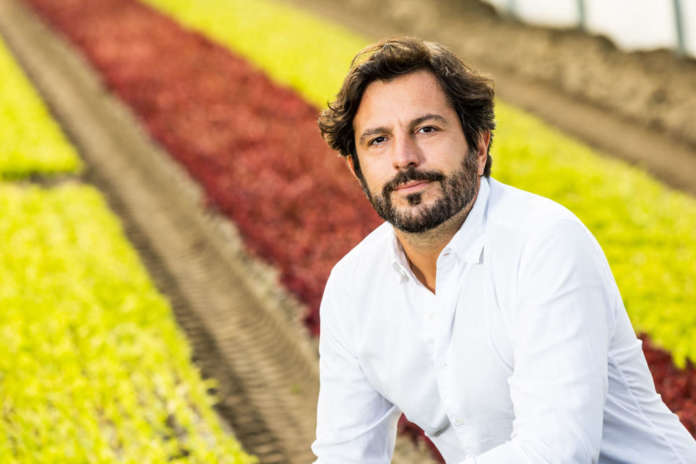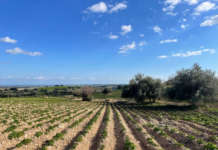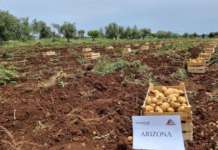La quarta gamma è tornata a crescere. Secondo le rilevazioni di mercato Niq il settore ha chiuso il 2022 con un valore complessivo pari a 982 milioni di euro, +5,1% a valore e + 5,4% a volume sul 2021, superando i livelli pre Covid. Va però detto che nell’ultima parte dell’anno le vendite del settore hanno risentito della forte inflazione registrando a dicembre un lieve calo delle vendite (-1,1%). Ma a dispetto dei numeri tornati positivi c’è malessere nella filiera. A lanciare il sasso è stata la decisione di Cultiva di chiudere lo stabilimento di Taglio di Po (Ro), che rimane in attesa di riqualificazione, per affidare la fase di trasformazione di baby leaf, cespi, insalate, erbe aromatiche a Sab nelle proprie strutture.
L’Op, che raduna una ventina di aziende per mille ettari di coltivazione, intende così concentrare le attività sui due terzi del business rimasti: la parte agricola e i conferimenti di produzione e commercializzazione di prodotti sfusi da vendere all’industria della quarta gamma in Europa e Italia. “I costi energetici hanno dato il colpo di grazia a una situazione insostenibile -racconta l’ad Federico Boscolo-. È quasi un anno che abbiamo denunciato le difficoltà in cui versa il nostro comparto. È un mercato che non cresce come nei primi anni Duemila. Il numero degli operatori in Italia è elevatissimo.
Gestire un business del genere è molto costoso, le temperature, la catena del freddo. E per farlo servono tanti volumi, ma oggi la corsa ai volumi si fa al ribasso: c’è sovrapproduzione rispetto alla domanda. In più ci sono modalità operative spinte dalla gdo e accettate dal comparto che rendono difficile la logistica, con scarti, inefficienze, camion che escono mezzi vuoti. C’è poi poca collaborazione tra le aziende. In Italia abbiamo frammentarietà della produzione e size matters. Servono pertanto aggregazioni tra Op e tra imprese”. A complicare le cose anche la transizione green che impone un pesante taglio ai fertilizzanti e agli agrofarmaci. “Abbiamo avviato negli Usa un progetto di sostituzione dei fertilizzanti sintetici con compost, utilizzo di microorganismi.
Servono però anni per migliorare le tecniche agronomiche. Il compost poi costa molto di più e non è così efficace come un fertilizzante. Per ridurre i pesticidi, abbiamo seminato sulla carta per evitare la crescita delle malerbe, ma costa tre volte tanto”.
Le tensioni della filiera si scaricano poi a valle, dove l’inflazione ancora a doppia cifra impone di intervenire sui prezzi. “Il bio non sta crescendo, anzi, ci sono clienti che stanno tagliando le stime. E credo che questa situazione di gestione del budget andrà avanti almeno per altri due anni. Questo dato negativo ci spinge però a lavorare ove possibile per ottimizzare, per esempio sulla logistica”. •
—–
Cultiva turns the spotlight on the critical issues of fresh-cut produce
PO Cultiva closed its processing plant and will devote itself to the agricultural part as a supplier of raw materials. The CEO Boscolo explained: ‘To invest in sustainability and innovation, aggregations between POs and between companies are needed’
Fresh-cut produce are growing again. According to NielsenIQ market surveys, the sector closed 2022 with a total value of 982 million Euros, +5.1% in value and +5.4% in volume compared to 2021, exceeding pre-Covid levels. However, it must be said that in the last part of the year, sales in the sector were affected by strong inflation, recording a slight drop in sales in December (-1.1%). But despite the numbers, which are positive again, there are difficulties with the supply chain. The stone was thrown by Cultiva’s decision to close its plant at Taglio di Po (Rovigo), which is still awaiting redevelopment, to entrust the transformation phase of baby leaves, heads, salads, aromatic herbs to Sab in its own facilities. The PO, which brings together about twenty companies for a thousand hectares of cultivation, thus intends to concentrate its activities on the remaining two thirds of the business, i.e. the agricultural part with the delivery of products and marketing of bulk products to be sold to the fresh-cut produce industry in Europe and Italy. The CEO Federico Boscolo explained: ‘Energy costs have given the final blow to an unsustainable situation. It has been almost a year since we denounced the difficulties facing our sector. It is a market that is not growing as it did in the early 2000s. The number of operators in Italy is very high. Running such a business is very expensive, because of temperatures, cold chain. And to do this, a lot of volumes are needed, but today the race for volumes is downwards: there is overproduction compared to demand. In addition, there are operating methods pushed by the large-scale distribution and accepted by the sector that make logistics difficult, with waste, inefficiencies, trucks that leave half empty. There is also little collaboration between companies. In Italy we have fragmented production and size matters in order to be able to invest in sustainability and innovation. Aggregations between POs and between companies are therefore needed’. The green transition which imposes a heavy cut on fertilizers and agropharmaceuticals complicate things, too. ‘We have launched a project in the USA to replace synthetic fertilizers with compost, using microorganisms. However, it takes years to improve agronomic techniques. Compost also costs much more and is not as effective as a fertilizer. To reduce pesticides, we planted on paper to avoid weed growth, but it costs three times as much’. The tensions in the supply chain are then discharged downstream, where inflation is still in double digits and requires action on prices. ‘Organic is not growing, on the contrary, there are customers who are cutting their estimates. And I believe this budget management situation will go on for at least another two years. There is a flattening trend on basic products. However, this negative data pushes us to work where possible to optimize, for example on logistics’.










